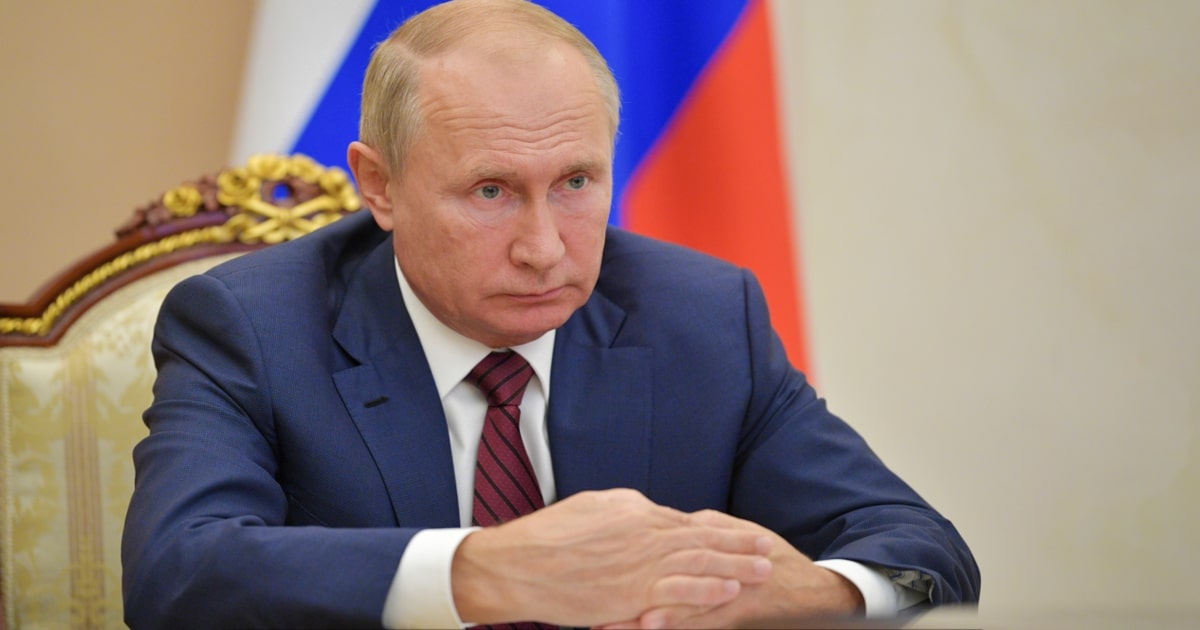Jeffrey Sachs: Xi Propagandist?
One does not need to be a hardliner on China, just a global realist, to see that there is a vast gap between Xi’s rhetoric and reality.
March 4, 2021

It is always a special moment in the lives of public intellectuals when mighty men on the world stage start parroting the edifice of thoughts which that intellectual helped shape over recent decades.
Such is the case right now with Jeffrey Sachs, the director of Columbia University’s Center for Sustainable Development.
When Xi channels Sachs
In his books and articles, Jeff Sachs has done much to frame and popularize the language and thinking to push a sustainable development agenda on the world stage. That is an achievement in which he can rightfully take considerable pride.
But that should not mean turning oneself effectively into a China — or rather: Xi Jinping — propagandist.
Sadly, based on a very explicit recent opinion article, titled “Why the US Should Pursue Cooperation with China,” one cannot arrive at any other conclusion. After all, time and again Jeff Sachs takes Xi’s pronouncements at face value.
Doing PR for China’s President for life
For evidence of his PR campaign for China’s President for life, consider this statement: “China’s goal is neither to prove that autocracy outperforms democracy…” An eyeroll conducted in utter disbelief is the most benign of reactions this conjures up.
But Sachs is just getting started. Soon after, he quotes Mr. Xi directly with his call on the global community “to abandon ideological prejudice and jointly follow a path of peaceful coexistence, mutual benefit and win-win cooperation.”
Viewed in purely rhetorical terms, that is a certainly a statement to be welcomed. But any public intellectual worth his salt would also explore the veracity of such a noble pronouncement by the speaker.
Xi’s hollow rhetoric
Given that Mr. Sachs has longstanding competence and experience in international debt issues, the dubious nature of Mr. Xi’s pronouncement must have been obvious to him.
After all, few countries in Africa — and ever fewer on the New Silk Road — still fall for this kind of lofty, utterly self-serving rhetoric from the Chinese side.
Jeff Sachs goes on quoting President Xi right thereafter, this time with Xi’s call to “close the divide between developed and developing countries and jointly bring about growth and prosperity for all.”
Once again, as such that would obviously be a good thing. However, the extremely one-handed way in which China applies this presidential pie-in-the-sky rhetoric in the real world cannot possibly have escaped Mr. Sachs.
And yet, he stays completely mum on testing the veracity of this Xi pronouncement on this point as well.
Wanted: Global realism, not subservience
One does not need to be a hardliner on China, just a global realist, to see that there is a vast gap between Xi’s rhetoric and reality.
Moreover, this is a gap that definitely warrants further explanations from the Chinese side. But on the issue of holding the Beijing govern¬ment accountable for actually delivering on its words, Mr. Sachs remains mum yet again.
Now, in the broader framework of global politics, no reasonable person can dispute Mr. Sachs’s statement that we “need shared global stewardship by all parts of the world.”
Blocking Biden
But to present all those Xi Jinping pronouncements as an argument to question the wisdom of Joe Biden taking a tough line on China misses the mark of an even remotely balanced analysis.
What’s worse, for all his devotion to “Xi Speak,” Mr. Sachs does not even attempt to explore the motives of the Biden administration’s reasoning. He essentially dismisses it with the same strictness the world expects out of the mouths of the spokespeople at China’s Ministry of Foreign Affairs.
China committed to openness and inclusiveness?
Instead, Sachs offers this true blooper and we quote: “Xi stated that the path to global cooperation requires remaining ‘committed to openness and inclusiveness,’ as well as ‘to international law and international rules’ and ‘to consultation and cooperation.’
Inserting that claim into an oped without any mention of Hong Kong, Xinjiang or Taiwan, to name but a few, is stunning.
Indeed, Sachs’s stance toward Xi is reminiscent of the duplicitous support that former German Chancellor Gerhard Schröder steadfastly offers his bosom buddy Vladimir Putin on the North Stream 2 pipeline.
From Yeltsin to Xi
Taking Xi at face value brings to mind the earlier, enthusiastic support of Boris Yeltsin in the 1990s by a young American economics professor who served at the time as an economic advisor in Moscow.
That man was none other than Jeff Sachs. Enthusiasm, whether then or now, should never result in abandoning one’s critical faculties. That remains true even if Xi Jinping himself is paying lip service to Jeff Sachs’s storylines.
Love China, then deal with racism at home?
The ultimate conceit, however, comes at the very end of Sachs’s Xi hagiography when he writes these words: “With reduced global tensions, Biden could direct the administration’s efforts toward overcoming the inequality, racism and distrust that put Trump in power in 2016 and still dangerously divide American society.”
At first flush, that reads like a plausible suggestion — until one understands that Mr. Sachs is not only falling for, but actively agitating(!) for a classic Communist propaganda ploy.
False equivalency
His “argument” sets up a false equivalency. The suggestion Sachs makes at least implicitly is that overcoming inequality and racism in the United States — both urgent priorities for any Democratic President — should be regarded as to be undertaken only upon reducing global tensions, and thus as a time-sequenced policy activity.
That is ludicrous. In fact, it smacks of alluring Soviet suggestions in the 1960s to leave them a free hand in Cuba, so that the United States could fully focus on dealing with its domestic racial tensions at the time.
Takeaways
It is a special moment in the lives of public intellectuals when mighty men on the world stage start parroting them. Such is the case right now with Jeffrey Sachs.
Sachs helped push a sustainable development agenda on the world stage. But that should not mean he should effectively turn himself into a propagandist for China.
One does not need to be a hardliner on China -- just a global realist -- to see that there is a vast gap between Xi Jinping’s rhetoric and reality.
Sachs’s stance toward Xi Jinping is reminiscent of the duplicitous support that former German Chancellor Gerhard Schröder offers Vladimir Putin.
Sachs’s enthusiasm – whether for Boris Yeltsin in the 1990s or Xi Jinping now -- should not result in him abandoning his critical faculties.
Authors

Stephan Richter
Publisher and “Editor-in-Chief of The Globalist, and Director of the Global Ideas Center, a global network of authors and analysts.

J.D. Bindenagel
J.D. Bindenagel is a former U.S. Ambassador and founding Henry Kissinger Professor at Bonn University. He is currently Senior Nonresident Fellow at the German Marshall Fund of the U.S.
